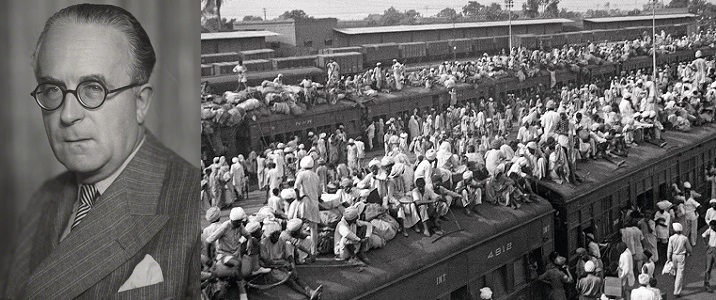How a ‘Neutral Umpire’ Nearly Gave Lahore to India During Partition

As India celebrates its Independence Day on August 15, it’s important to reflect on a critical moment in history: the partition of India in 1947. This hasty process, overseen by Lord Mountbatten, led to significant turmoil and violence. Here’s a detailed look at how Sir Cyril Radcliffe, the man tasked with drawing the borders, played a pivotal role in this momentous event.
The Partition Process
The British originally planned for the partition of India to occur on June 6, 1948. However, under immense pressure, they expedited the process to August 15, 1947. The responsibility of demarcating the borders between India and Pakistan was given to Sir Cyril Radcliffe, a lawyer who had never visited the Indian subcontinent before.
Radcliffe was appointed as the chairman of two boundary committees and had only 36 days to complete this complex task. The urgency of the situation, combined with Radcliffe’s unfamiliarity with the region, led to decisions that would have long-lasting effects.
Political Pressures and Controversies
Radcliffe’s work was heavily influenced by political pressures. In his conversations with journalist Kuldip Nayar, Radcliffe admitted that he felt Lahore, a major cultural center with a significant Hindu and Sikh population, should have been part of India. However, he ultimately decided to keep it in Pakistan, reasoning that India already had Calcutta and that Pakistan needed a major city of its own.
Radcliffe’s final report, submitted on August 13, 1947, faced scrutiny and suspicion. Allegations arose that the boundaries were altered to favor India. Sir Zafrullah Khan, Pakistan’s foreign minister, claimed that changes were made under pressure, leading to an investigation by British authorities. Christopher Beaumont, a former secretary to the Radcliffe Commission, suggested that borders were secretly redrawn to benefit India.
Radcliffe’s Legacy
Sir Cyril Radcliffe left India on August 14, 1947, never to return. He declined the £5,000 fee for his services and expressed regret about the partition’s consequences. When asked about visiting India, Radcliffe responded, “God forbid. Not even if they asked me. I suspect they would shoot me out of hand—both sides.”
The borders drawn by Radcliffe continue to impact Indo-Pakistani relations, highlighting the challenges of partitioning a nation in such a short time frame and under immense political pressure. Radcliffe’s role in this historical event remains a significant and controversial aspect of the partition of India.




